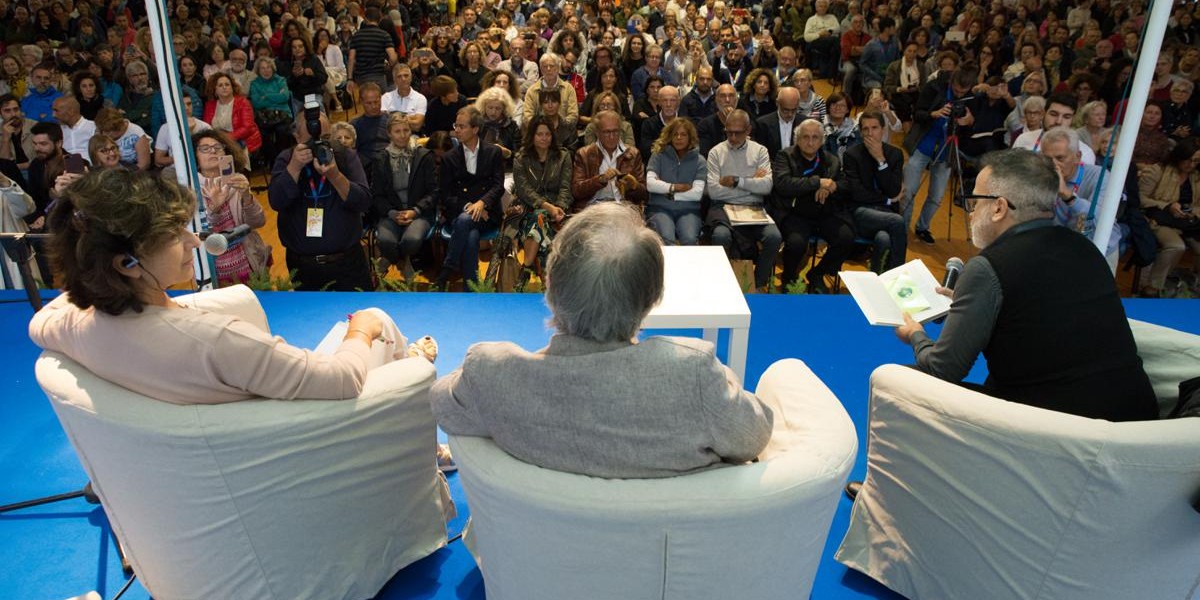
Ian McEwan and Marcello Fois on the future coexistence between humans and machines
Interviewed by Sardinian writer Marcello Fois, Ian McEwan begins by applauding the Festivaletteratura audience: "I have been to many literary festivals, but nobody beats Mantua in terms of welcome and passion for literature."
The air is filled with the scent of special events: this is the closing event of Festivaletteratura, and the courtyard of Palazzo Ducale is crowded. In the front row also Abraham Yehoshua, the Israeli novelist.
Marcello Fois leads the conversation on McEwan's latest novel, Machines Like Me (2019), which tells the story of Adam, an android, and the relationship that develops with its owners leading to the love triangle. It is a novel, set in 1982, that deals with ethical issues such as the way we deal with technical progress, the coexistence of human beings and androids, and the intimate condition of couples and families. Placing the narrative in an alternative historical chronology (where the Internet and social media already exist, Adam Touring is alive, the UK has lost the Falkland War, etc.) was a way for McEwan to free his writings from all expectations and pressure to write about the future.
This is also why some critics have defined the novel as retro-futuristic, even if the author prefers not to put labels on his work.
"When you finish a book, you send it on the road and what happens is not under your control. As time goes by, I notice that I tend to return to writing about the passions of my youth".
The idea of building humanized creatures, like us, was a very ancient dream of humanity: for this reason, Ian McEwan defines the story behind his novel not so original. Prometheus, Jason and the Argonauts, Adam and Eve, are already more famous characters of the archetype of creation, according to him. However, he thinks that the most symbolic text that comes close to this topic remains Mary Shelley's Frankenstein. Another touching theme of the novel and of the conversation between McEwan and Fois is the value of truth in human relations and the moral dilemmas that derive from it. A non-human creature can't tell lies; but for humans, white lies are a critical aspect of social relationships. Figuring out whether we can say such lies or not is impossible for a machine governed by an algorithm. This is where McEwan's story becomes a way to investigate the plausibility for human beings to find themselves living in intimate and even sexual relationships with androids.
Around the closing stages of the event, when questioned about Brexit and what is happening in the UK, McEwan highlights the important responsibility writers have in addressing social and political issues in their writings, citing Abraham Yehoshua and what he did with the Israeli-Palestinian conflict.



